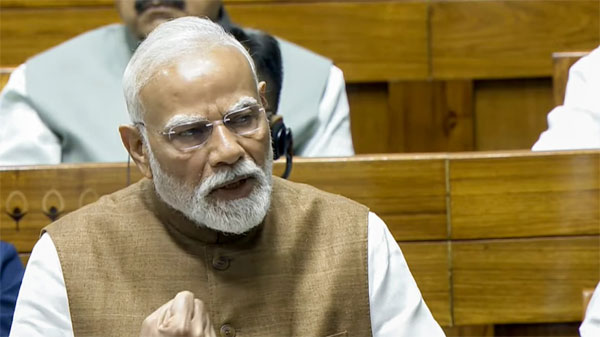Daijiworld Media Network - New Delhi
New Delhi, Jul 29: Amid a charged Lok Sabha session on Tuesday, Prime Minister Narendra Modi revealed that he deliberately did not respond to multiple calls from US Vice President J.D. Vance on May 9, as he was presiding over a crucial national security meeting related to Operation Sindoor.
“He called four or five times. I was in a national security meeting and couldn’t take the call. I returned it later,” Modi told Parliament.
The US had expressed concern over possible escalation between India and Pakistan, with VP Vance reportedly trying to reach Modi to urge restraint.

However, the Prime Minister asserted that he told the US clearly that any Pakistani provocation would invite a stronger Indian response.
Operation Sindoor: India’s Strategic Message
Operation Sindoor was a 22-minute retaliatory strike on May 6-7, hitting multiple terror bases deep inside Pakistan, including Bahawalpur and Muridke. PM Modi said the operation met all its strategic goals.
“This time, we didn’t stop because of global pressure. No world leader asked us to halt,” he said, adding that India’s assertiveness had reshaped international perceptions.
“From Sindoor to Sindhu”
In a pointed remark referencing the Indus Water Treaty, Modi said, “The world saw the scale of our response – from Sindoor to Sindhu.”
He emphasized that India now acts on its own terms, unfazed by nuclear threats or foreign mediation.
Congress Under Fire
Taking aim at the Congress party, PM Modi accused them of failing to support India’s armed forces.
“While the world supported us, Congress could not stand with our soldiers. This is the new India — we don’t wait for approval to protect our people,” he said.
A Shift in Doctrine
Modi’s speech reinforced a key message: India’s security posture has shifted — it now operates with decisiveness, autonomy, and strategic clarity, even in the face of international concern.
As debate over Operation Sindoor continues, the Prime Minister’s remarks signal a clear departure from past doctrines of restraint, marking what many see as a new era in India’s defence policy.